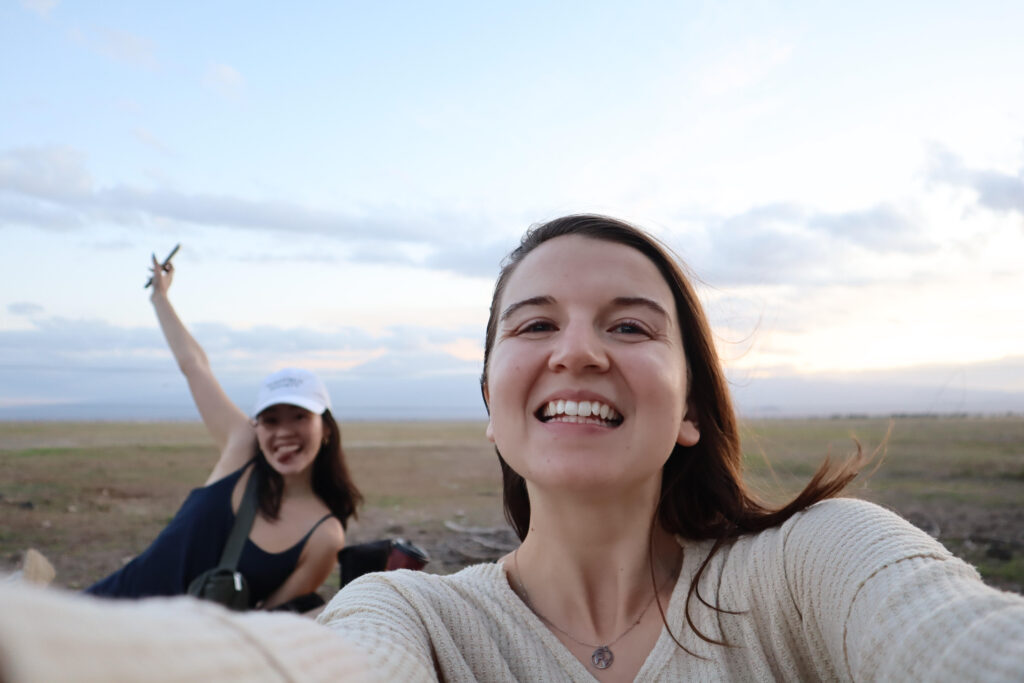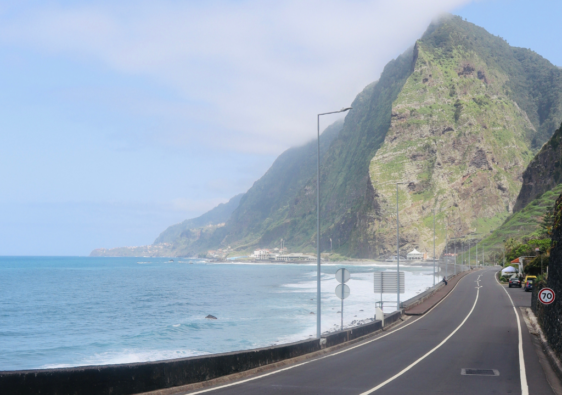Going on a safari is easily one of the most amazing experiences you can have on this Earth. I have never felt as connected to nature, fellow travelers, and the vastness of this world the way I did during my nine day safari through Kenya. Safaris are such a special experience, and in this blog post I will be giving you 10 tips to know before your first African safari trip!
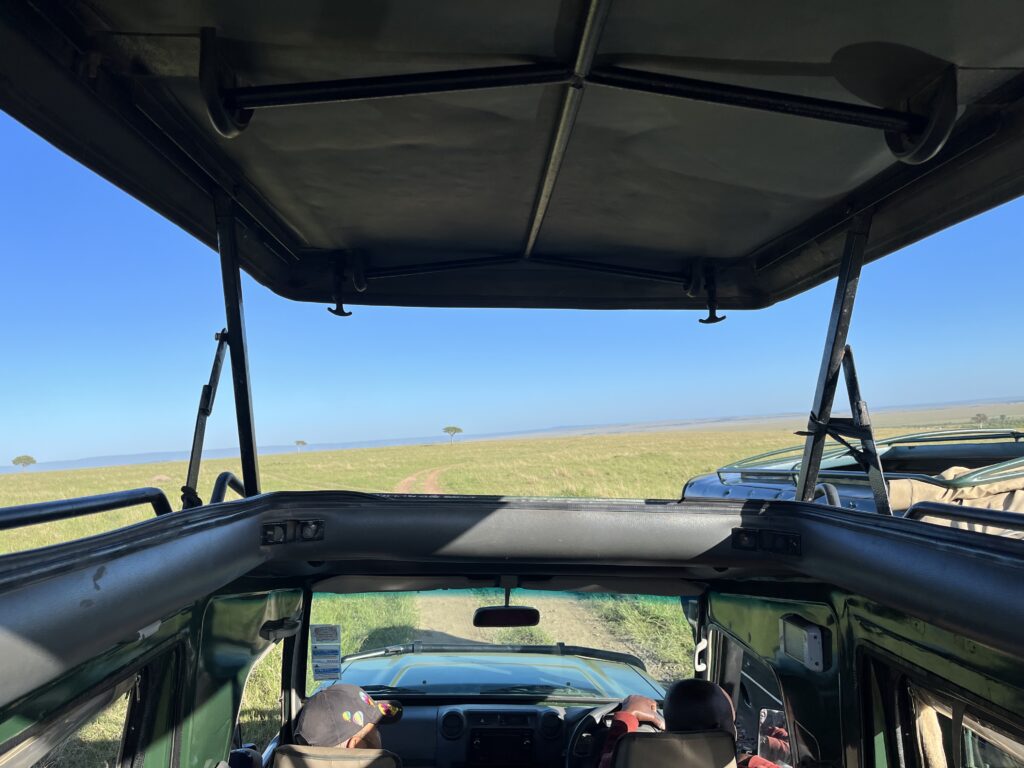
What is a safari?
In general terms, a safari is a trip where your main focus is on seeing animals. There are so many different safari options in the world. However, when most people think of safaris, they think of the African continent. Safari trips often involve traveling with a guide to remote corners of national parks and spending hours out on the savannah watching animals.
When is the best time to go on a safari?
Most sources recommend June through October, as this is the dry season. However, I went on my safari trip in December-early January, and there were no weather related incidents. You can find the tour that I participated in here, and you can see that it has many different trips for different times of the year.
Interested in saving money while you travel? I have a whole post dedicated to saving money while exploring the world!
Now, on to the 10 tips!
1: You will need a guide.
National parks on the African continent are vastly different from those in the United States. Because there are large predators, you cannot go on a classic “hike” the way you can in the U.S. Instead, the company you book with will have you connected to a driver that is trained at exploring the national parks, and they will drive you around the park.
I do not recommend trying to book your African safari trip yourself. While it can be done, most of the lodges have deals with certain companies, and can ensure that you have lodging, meals, a driver, and a safe experience.
In addition, it is nice to have a guide because they are experts in the area. Without our guide, we would have had no utter idea where to go, and would probably have missed many different animal encounters.
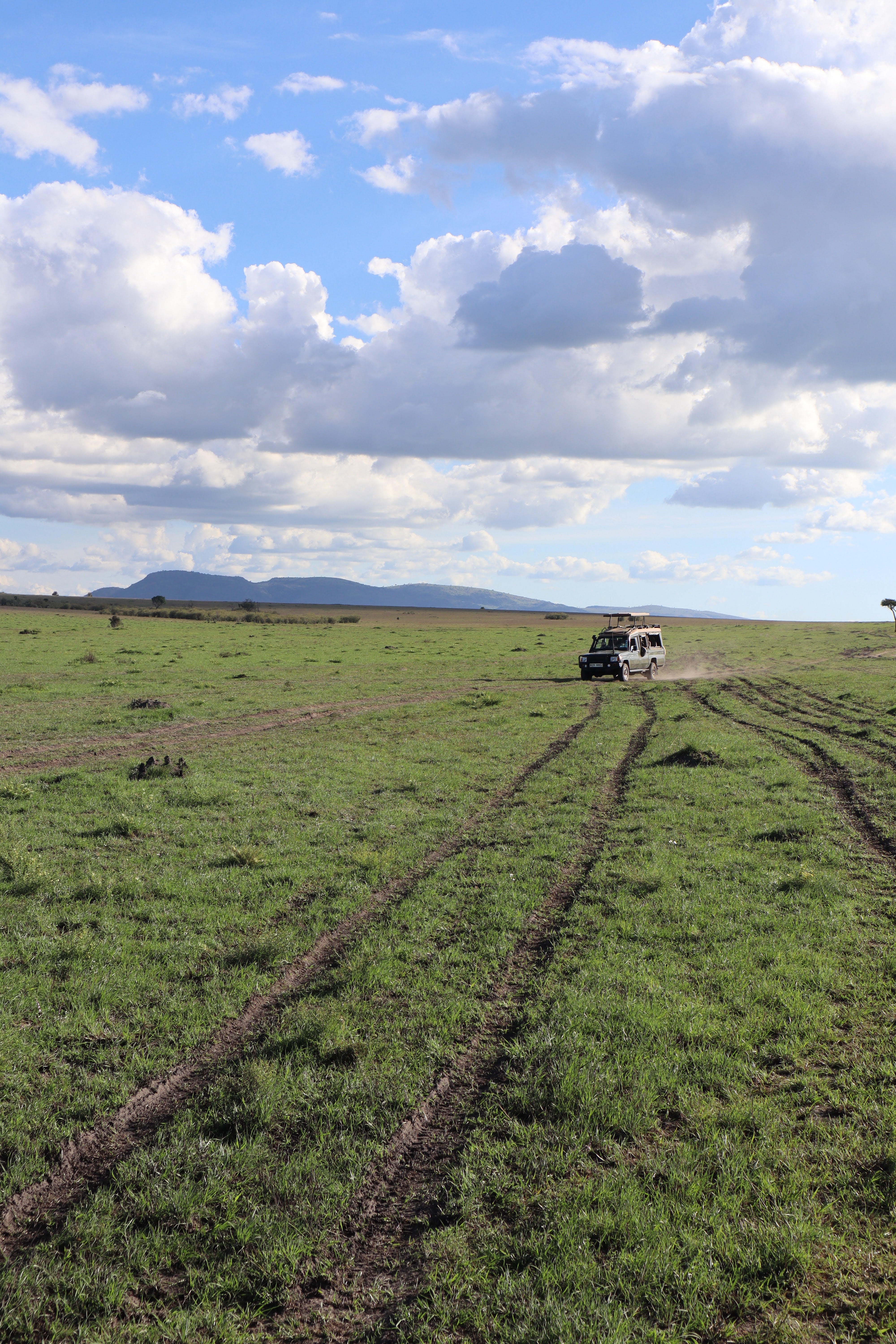
2: Bring layers.
When people think of African safaris, they oftentimes think of light colored, breathable clothing. And, those outfits are great! However, the mornings in these national parks are freezing, and safaris typically have early wake up calls. I would recommend packing layers. Typically, I gravitated towards long sleeve outfits and linen pants. I had a sweatshirt I wore at night.
3: Expect the unexpected, and be patient.
I found that the rhythm of these safaris is to hurry up and then wait. Animals are fairly unpredictables, so there were moments of us just driving around, not seeing much. Typically, when we would find an animal, we would find five or six, and it would be a super chaotic hour as we drove around, trying to see everything.
So, if your morning or afternoon is starting off a bit slow while on safari, just give it time. I promise, it will pick up!
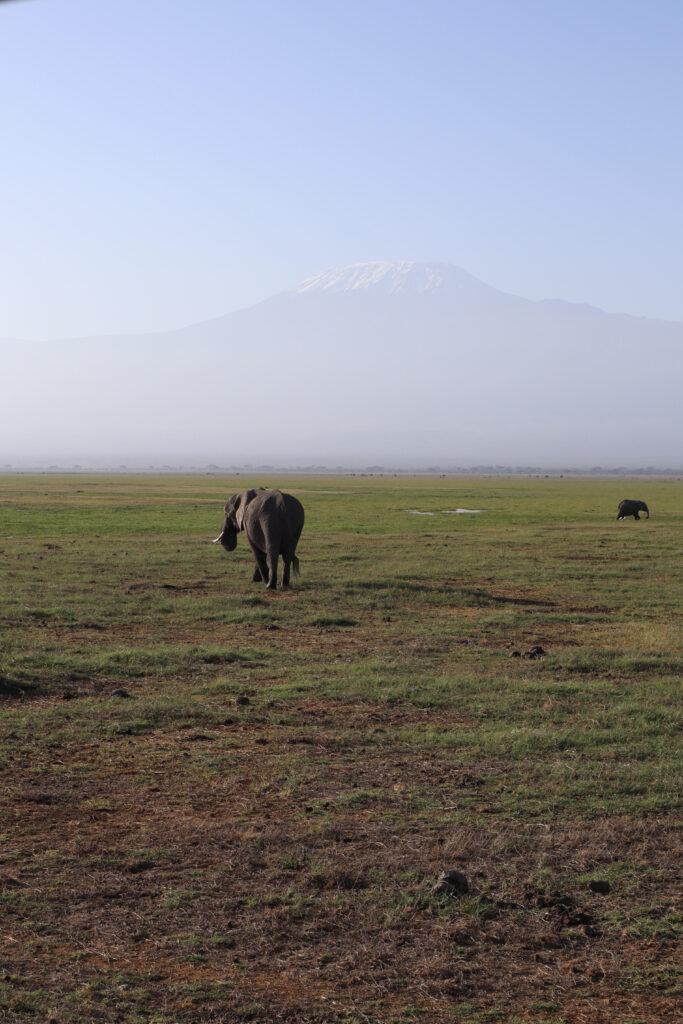
4: Drink electrolytes.
Your guides will likely have refreshments for you, but safaris are essentially long days in a car. And, they are amazing! Safaris are truly a once in a lifetime experience. However, they are pretty exhausting on the body. For this African safari tip, I would recommend electrolytes, because they help to hydrate the body and can clear brain fog. Plus, they are a nice way to maintain a routine when you might be eating foods that are different from your normal diet.
5: Respect the rules of the park.
Different parks will have different rules, and most of these rules will be set in place to protect the animals. With this, it is super important to respect the guides that respect the rules.
Story time: In Masai Mara, you are not allowed to have a car within a certain number of feet of a leopard. Why is that rule in place? Not totally sure, but it is one I respect. When we were out on safari one evening, there was a leopard spotted in a tree, and a big crowd of safari vehicles swarmed the tree. Our guide did not; he followed the rules and maintained a safe distance. Some of the people within our group were definitely irritated about not seeing the leopard. But, we followed the rules, respected the law even when others did not, and saw another leopard later on in the trip. It all worked out!
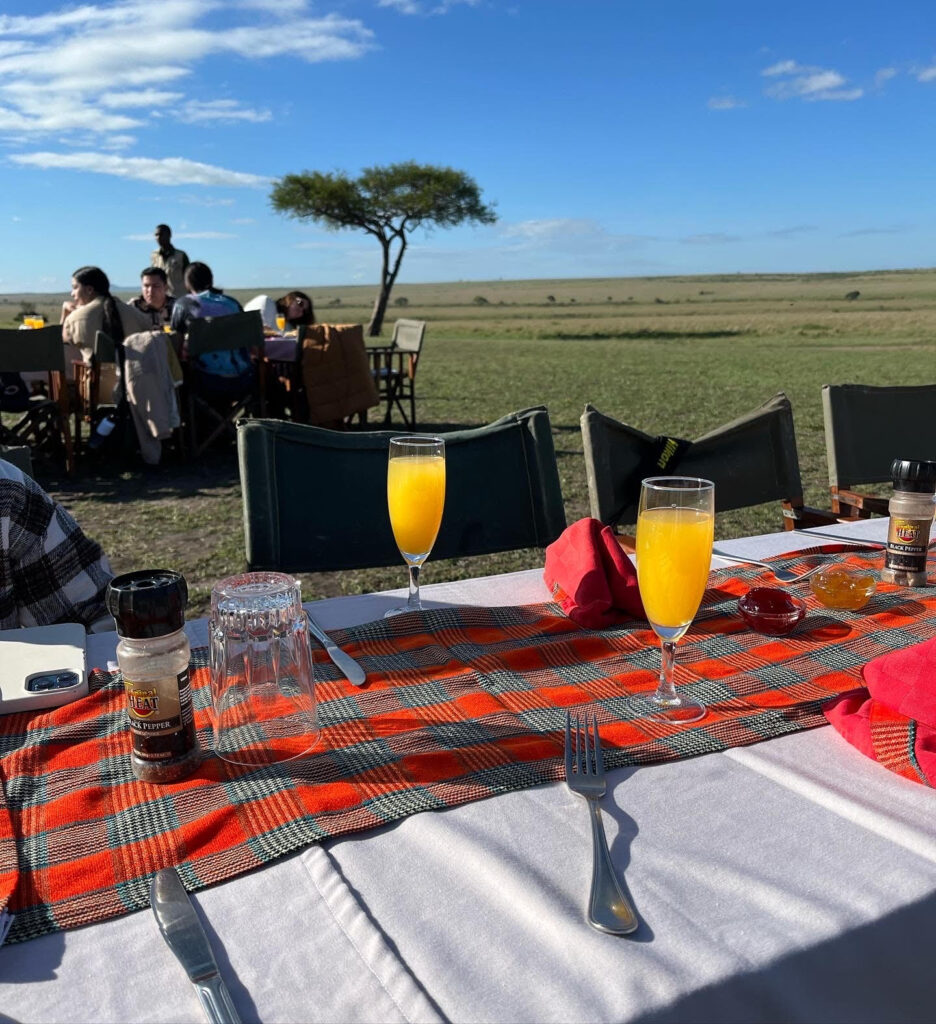
6: You will be doing less walking than you think you will.
Truth be told, you will be spending most of your day in a car. Hiking and walking is discouraged in the parks and preserves due to the large animals, so you will be spending most of your time within the jeep. Because of this, make sure you prioritize comfort over movement range when picking and deciding on outfits.
7: You are safe.
On safari, you will frequently be very, very close to wild predators. This might, understandably, stress you out. However, our guide explained it like this: a lion or an elephant cannot tell that there are individuals in the car-they just see one giant thing. Predators are less likely to attack if they are not sure they can win, so it is very, very rare for a lion or other large African animal to attack the car. In addition, your guides are in charge of your safety. If there are any issues in safety, they will remove the car from the situation.
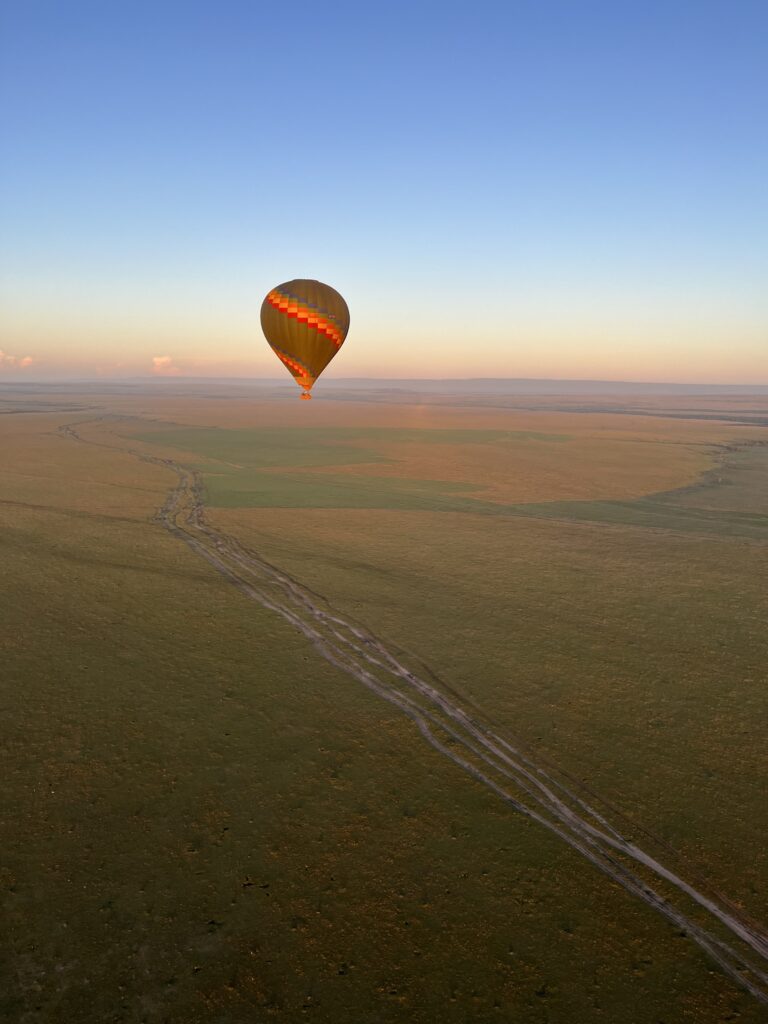
8: Expect long car rides in between the parks.
This was something I was not prepared for-you will spend a lot of time road tripping between the various national parks and preserves. They are not close together, so expect lots of car time. The guides try to break up the journey and there are designated “tourist guest stops” that frequently have restrooms, food, and souvenirs.
9: Bring money for tips.
While on safari, you will have a great chance to interact with many of the local people of the region. Tipping culture is big in many African countries, so one of the best tips I can give your your African safari is to bring change to tip the doorman, your guide, etc.
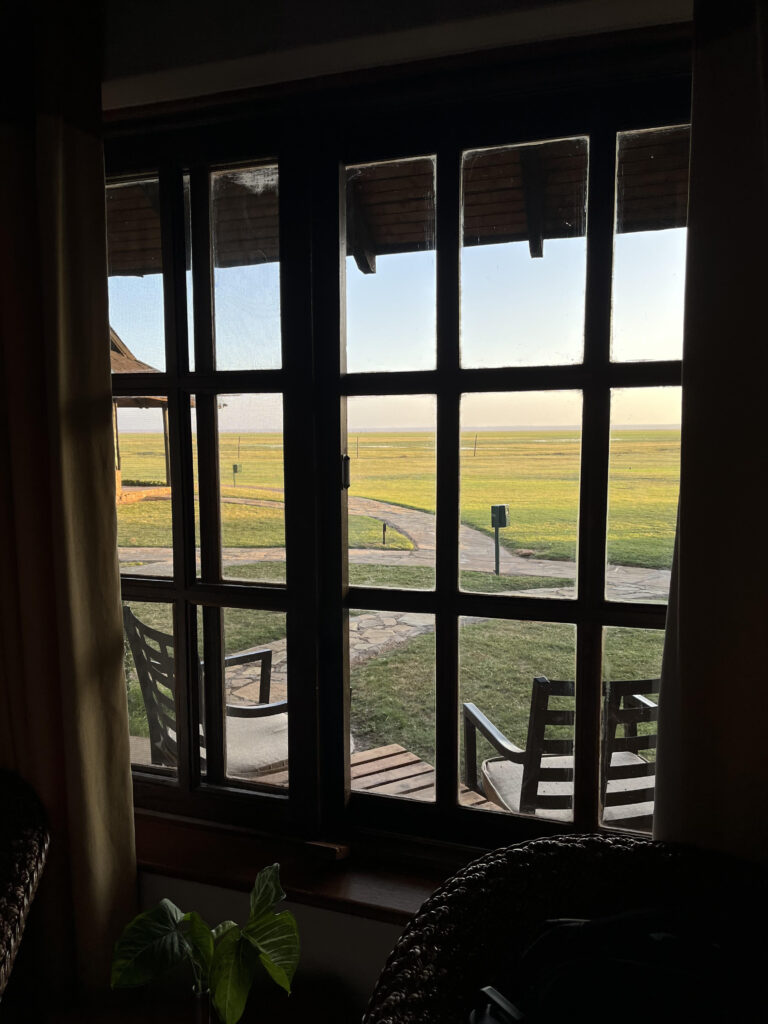
10: Learn about where you are visiting.
The African continent is frequently lumped together as one, but it is an incredibly complex region that has a complex history with protecting its wild spaces. While there, as your guides questions, learn not just about the animals but also about the local government of the region, and be curious. Guides and locals you interact with will appreciate it if you are at least relatively up to date on the current events and culture of the region.
Bonus tip: food for vegetarians. I have been to both South Africa and Kenya, and both regions have a heavy emphasis on meat in their cuisine. This makes sense, but was challenging as a vegetarian. However, there is also a very heavy Indian influence on cuisine in this region, particularly cuisine in Eastern Africa. At the lodges, I had no problem eating as a vegetarian and was thankful to be eating new cuisine!
Have the best time on your trip, and hopefully these 10 tips for planning your African safari were helpful!
